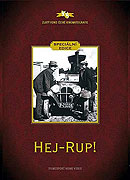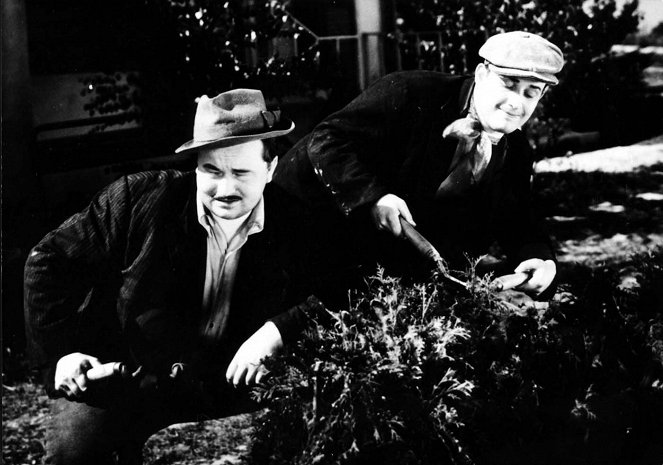Directed by:
Martin FričCinematography:
Otto HellerComposer:
Jaroslav JežekCast:
George Voskovec, Jan Werich, Helena Bušová, Anna Švarcová, Josef Skřivan, Theodor Pištěk, Zvonimir Rogoz, Alois Dvorský, Václav Trégl, František Černý (more)Reviews (3)
A classic Czech film, which today would definitely be considered politically engaged, it is important to realize that it was made before the Second World War and before the advent of communism. When you overlook the fact that it is possible to see ideology in it, you come across a film that has incredible lines. Essentially, there is always something to laugh about, and it is evident how wonderfully the chemistry between Voskovec and Werich worked. Today, it certainly won't appeal to everyone, mainly due to its unbridled enthusiasm and easy association with socialist communism, where everything belongs to everyone. However, this doesn't change the fact that it is an entertaining film with great actors and excellent dialogue.
()
A great satire that sold out cinemas even during the crisis, that's how good the film is. It spoke so much to people's souls at the time. I consider the fact that Voskovec and Werich decided to work on it with the pioneer Martin Frič (Hej-Rup!, for example, is our first ever with rear projection) a very happy decision, and it is also clear that Václav Wasserman also wrote the script with them. It makes the story flow nicely, every scene leads to something, nothing is "just for fun", although there is a lot of fun. The best film of all, however, was yet to come from V+W. "So I'm actually done for." - "But honorably!"
()
When it was made, the film was received by Czech film critics with undisguised enthusiasm, seeing in it a breath of fresh air, and even a touch of worldliness, in an otherwise stale Czechoslovak film scene. Let's face it, compared to all those silly Czech films with their happiness and sadness, this can definitely be considered an Oscar-worthy affair, although unfortunately, it's more like a one-eyed king among the blind. The time period in which it was made is very apparent, as Czechoslovak cinema was just beginning to develop and Voskovec and Werich were only just finding their place on the silver screen. In both cases, especially with Voskovec, the theatrical style of the Liberated Theatre is still noticeable. Additionally, this film is a manifesto of the interwar left-wing avant-garde influenced by the Soviet model, and deeply immersed in the belief in the power of collectivism. Of course, the historical context is different from the construction works of the late 1940s and early 1950s, and the creators of the film received praise from the liberal bourgeois press, but still, that genuine naivety feels somewhat unpleasant to me. I disagree with those who claim that the film satirizes left-wing ideals, as that critical distance is missing, partly because the film was made before the Moscow Trials and there was no reason to doubt. The apparent caricature is rather a consequence of the unintentional mishandling of individual motifs. It was meant to be a social critique, but you cannot make a full-fledged adversary to Voskovec and Werich out of a trembling wheelchair user who represents a powerful factory boss and who also awkwardly overacts. Werich, as a typical representative of left-wing ideological orientation on the silver screen, portrayed his ideals much more convincingly in The Emperor's Baker - The Baker's Emperor a few years later. Overall impression: 55%.
()


Ads